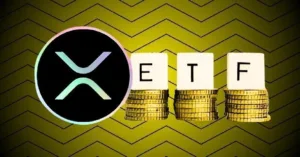A blockchain consensus mechanism that delivers comparatively fast transactions using identity as a stake.
Proof-of-authority (PoA) is an alternative consensus mechanism, which relies on known and reputable validators to produce blocks, and thus, provide computational power to a network. It enables relatively faster transactions using a Byzantine Fault Tolerance (BFT) algorithm with identity as a stake.
PoA is a type of consensus mechanism geared towards enterprises or private organizations who want to build their own chains that are essentially closed in nature and don’t require participation from general users.
Since a network running PoA is permissioned, it doesn’t require any “mining” activity. However, network participants can still deploy redundancy by running multiple nodes under the same identity.
This type of consensus mechanism isn’t resource intensive, but requires validators to preserve the integrity of their nodes. It can be understood as a mechanism, which provides incentivization to act honestly and in accordance with the proper functioning of a network, due to user identity and reputation at stake.



